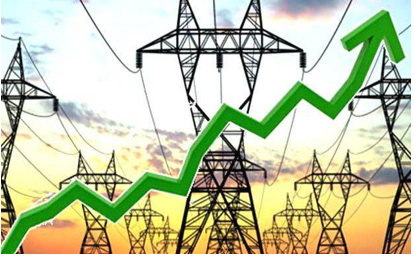INP-WealthPk
Amir Saeed
US tariffs have exacerbated Pakistan's energy crisis, driving up costs and straining economic stability through increased import prices and currency depreciation.

Talking to WealthPK, Ahad Nazir, Associate Research Fellow at the Sustainable Policy Development Institute (SDPI), highlighted that the imposition of a 29% tariff on exports posed significant challenges for Pakistan’s economy, particularly impacting the energy sector. This development threatens to exacerbate the existing vulnerabilities in energy production and consumption, demanding swift and strategic responses.
“In the short term, the tariffs are expected to reduce the country’s export revenues by approximately $1 billion. This decline will strain the foreign exchange reserves, making the importation of essential energy commodities like oil and gas more costly. Consequently, the energy production costs are likely to rise, potentially leading to increased electricity tariffs for consumers.
“The economic uncertainty stemming from tariffs may also cause potential investors to adopt a cautious approach, delaying or reconsidering planned investments in Pakistan's energy infrastructure,’’ he said. He pointed out that over the medium term, sustained revenue losses could exert downward pressure on the Pakistani rupee, leading to depreciation. A weaker currency would further amplify the cost of importing energy resources and technology, exacerbating the financial strain on the energy sector.
“In response, Pakistan might seek to diversify its energy import sources or renegotiate the existing contracts to mitigate the increased costs, potentially leading to new geopolitical alignments and trade relationships.” “In the long term, persistent high costs associated with imported energy may incentivize Pakistan to invest more robustly in domestic renewable energy projects. This shift aims to reduce reliance on imported fuels and enhance energy security,’’ Nazir opined.
“Furthermore, the compounded economic pressures may catalyze comprehensive reforms in Pakistan’s energy policies, focusing on sustainability, efficiency, and self-reliance to buffer against external economic shocks.’’ “To navigate these challenges, Pakistan should consider diplomatic efforts to explore possibilities for tariff reductions or exemptions, emphasizing mutual economic benefits.
Implementing measures to reduce production costs, such as improving infrastructure and streamlining regulatory processes, can enhance the energy sector’s competitiveness,’’ he suggested. “Actively seeking and cultivating trade relationships with other countries and regions reduces reliance on any single market, thereby mitigating the impact of similar future economic policies.’’
Talking to WealthPK, Farhan Wahid, a green finance researcher at the Quaid-e-Azam University, Islamabad, said the imposition of US tariffs on Pakistani exports has significantly impacted the energy sector, driving up costs and exacerbating the existing challenges. He highlighted a troubling trend where electricity costs are directly influenced by the US inflation and dollar indexation mechanisms embedded in contracts with the independent power producers (IPPs).
These clauses protect the IPPs from currency depreciation but pass the burden on to consumers, raising electricity tariffs substantially. Wahid noted that capacity payments for the imported coal-fired plants have surged by 216% over five years due to these mechanisms, now constituting 70% of overall tariffs.
This surge in energy costs is compounded by the rupee depreciation and rising local inflation, further inflating the electricity bills for households and businesses. He stressed that renegotiating IPP contracts to eliminate dollar indexation is critical to stabilizing tariffs and reducing the disproportionate burden on smaller consumers.
Credit: INP-WealthPk





